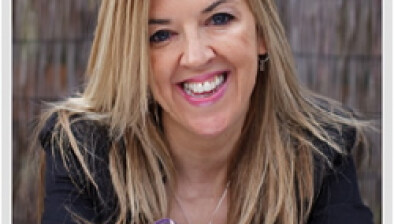Middlebrooks expands south of the border to support English credit card debtors

Claire Middlebrook of Middlebrooks Business Recovery and Advice speaks exclusively to Scottish Financial News about her move south of the border to help with credit card debt.
The debt referred to is a problem to many thousands of people mainly in England and Wales who will often be earning at least an average UK salary of circa £27,000, but use credit cards too much for their own good. It is people from inside this group who go on to contact providers of Individual Voluntary Arrangements (IVAs).
Claire Middlebrook, managing director of Middlebrooks Business Recovery and Advice, has in two years built an award-winning boutique insolvency practice and decided this summer it was time to expand.
She said: “The people that I am talking about are on the Internet looking for help. They find financial advisers who in turn contact an insolvency practitioner such as me to create an IVA to assist with writing off their debt.”
Middlebrooks, headquartered in Edinburgh, has recently opened up an office in Manchester for the first time, simultaneously taking on an experienced insolvency associate there. Three new staff in Edinburgh and Glasgow - with possibly more appointments to come - will service this new volume of work. Already in less than a month, Middlebrooks have picked up 30 IVAs through their move into England.
While the contracts which Middlebrooks will operate by are with ‘provider’ financial advisers, not directly with the people who have the money problems, nevertheless it is helpful that the Edinburgh firm uses the most innovative forms of communication such as Skype or WhatsApp for exchange of documents.
Ms Middlebrook said: “Someone in personal debt of up to £30k is as stressed as people with an ailing company, even more so in fact because it’s in their home with them all the time .They get phone calls nightly asking for repayment. By far the majority of these folk won’t open a letter any more so the electronic thing is good for them as well.”
Many individuals who seek an IVA regularly receive loans from pay day lenders. They may be at a point where they cannot pay the loan back or may have a county court judgment against them and be struggling for funds. The security from Ms Middlebrook’s point of view as insolvency practitioner is that each and every one of these individuals will be in work and earning income.
So where do IVAs differ from the business recovery and insolvency instructions which MBRA has built up thus far in Scotland?
“The IVA lasts for 5 years and can be quite labour intensive from the outset,” Ms Middlebrook said. “There are packs of documents to go through for the individual to fully grasp what he or she is getting into. There is similarity to a trust deed but the basic premise is they pay a monthly amount to take part.”
She added: “The major cross-border difference is that we bring creditors more into the picture than in Scotland. An IVA must be agreed by creditors, hence they are involved early. We spend time making sure that what the individual proposes is palatable to the consumer debt agencies who we are working with. It’s also fair to say that under the regular Scottish insolvency model we tell creditors what they are going to get back! With IVAs in England it is sensible to listen and negotiate that teeny, weensy bit more!”
Ms Middlebrook views her entry into IVA work positively, especially since there are fewer and fewer people offering it due to heavy regulation. She may now take the opportunity to build up portfolios of cases before selling them on to fellow insolvency practitioners, something that is quite prevalent in England and Wales unlike Scotland.
While this is a new venture for Ms Middlebrook, she finds it running smoothly so far. “Even the English person who’s a debtor seems to be more sophisticated than the Scottish debtor in terms of sending us documents through WhatsApp, taking pictures and sending them from their smart phone. I like that because I’m trying to run Middlebrooks on a paperless basis.”
She said: “I did this kind of work early in my career, so it was in my mind to make it a new arm of the firm. As a business we are transactional. There is little or no recurring work, so we need a varied portfolio. In larger cases, where we achieve higher returns for creditors, these can take longer to come to fruition from a fee point of view. You will often need 18 months to gain a six figure fee. In order to balance that out, higher volume work of this type is important.”
Ms Middlebrook explained the new income stream: “The IVA takes 5 years to run its course. But our fee is from what the individual debtor pays in to the IVA. We draw up a proposal. Say the individual pays in £500 times sixty, then we will take a proportion as our fee and the balance gets paid out to creditors. It’s beneficial to us on a number of counts, but an important one is that Middlebrooks is cash positive for a given number of months. For any IVA we are looking at, we want that individual to have monthly disposable income and in some cases for us to have the option of equity in a property as well.”
Ms Middlebrook intends to be in Manchester on a regular basis. “It’s important I do face to face meetings. Right from the start we’ve made it about getting to know people step by step. That will not change in spite of expansion.
She added: “Well we are certainly not adopting the factory-like approach of some companies who aim for around 1,000 IVAs every month! All we hope is that our move into English IVAs will create a solid foundation and take Middlebrooks to the next level.”







